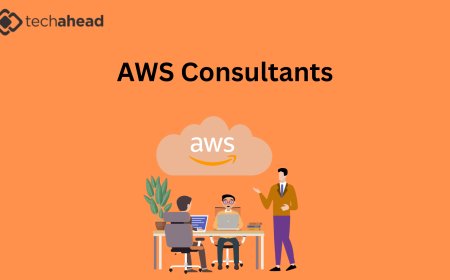What Are Some Common SAP Interview Questions?
SevenMentor is a recognized training institute in Pune with solid infrastructure, updated SAP courses, and support services. Reviews are mostly positive about teaching quality and organizational culture.

If you're preparing for a career in SAP (Systems, Applications, and Products in Data Processing), its important to familiarize yourself with the types of questions you might face during an interview. SAP is a widely used enterprise resource planning (ERP) software, and professionals with SAP expertise are in high demand across industries.
Whether you're a fresher or an experienced professional looking to upskill through SAP Training in Pune, understanding common SAP interview questions can give you a competitive edge. Lets explore some of the frequently asked SAP interview questions and how to approach them.
1. What is SAP, and why is it important?
SAPs integrated platform allows real-time data processing and improved business intelligence.
Understanding this concept is often covered early in a quality SAP Course in Pune, especially for beginners.
2. What are the different SAP modules?
Answer: SAP offers several functional and technical modules. Some of the most popular modules include:
SAP FICO (Finance and Controlling)
SAP MM (Material Management)
SAP SD (Sales and Distribution)
SAP HCM (Human Capital Management)
SAP ABAP (Advanced Business Application Programming)
SAP BASIS, SAP PP, SAP CRM, and more.
Enrolling in SAP Classes in Pune can help students gain in-depth knowledge of one or more of these modules depending on their career goals.
3. What is the difference between OLTP and OLAP in SAP?
Answer: OLTP (Online Transaction Processing) is used for day-to-day data processing tasks, such as order entry and financial transactions. OLAP (Online Analytical Processing), on the other hand, is used for data analysis and decision-making purposes. SAP systems use both OLTP and OLAP for efficient data management.
This is a common theoretical question in interviews and is often discussed during SAP Training in Pune sessions.
4. Can you explain what SAP NetWeaver is?
Answer: SAP NetWeaver supports various SAP applications and helps streamline the overall enterprise architecture.
Understanding NetWeaver is critical for those taking advanced SAP Classes in Pune, especially in technical modules like SAP BASIS and SAP PI.
5. What is the role of a SAP consultant?
Answer: SAP consultants are responsible for analyzing business requirements, configuring SAP solutions, testing systems, training users, and supporting post-implementation tasks. They may specialize in functional or technical areas.
Those pursuing a SAP Course in Pune often choose a specialization based on their interestsfunctional (like SAP FICO) or technical (like SAP ABAP).
6. What is a 'client' in SAP?
Answer: A client in SAP is a self-contained unit with its own master data and set of tables. It allows multiple businesses to operate independently within the same SAP system. This concept is essential to SAP architecture and is a frequent topic in interviews.
Experienced trainers in SAP Classes in Pune ensure that students grasp this foundational concept through hands-on labs and real-world examples.
7. What is the use of 'transactions' in SAP?
Answer: A transaction in SAP is a sequence of logically connected dialog steps that allows a user to perform a specific task, such as posting a sales order or updating inventory. Each transaction has a unique code (T-code) used to access it quickly.
For example, FB50 is used for general ledger posting, and VA01 is used to create sales orders. Understanding and memorizing T-codes is a key skill taught during SAP Training in Pune.
8. What is the difference between Master Data and Transaction Data?
Transaction Data, on the other hand, is data related to day-to-day transactions like sales orders, purchase orders, and invoices.
This is a basic yet critical concept taught in every SAP Course in Pune.
9. What is the use of the SAP GUI?
Answer: SAP GUI comes in several forms such as SAP GUI for Windows, HTML, and Java. Knowing how to use SAP GUI effectively is crucial for daily tasks.
SAP Classes in Pune often provide hands-on training using the SAP GUI so that students become proficient before facing real-world challenges.
Interview Questions of SAP S/4 Hana sourcing & procurement
10. What is a 'Posting Period' in SAP?
Answer: Posting periods determine the time frames during which transactions can be posted to the SAP system. Each fiscal year is divided into multiple posting periods to maintain accounting accuracy.
This topic is frequently discussed in interviews, especially for roles in SAP FICO. If you're enrolled in a SAP Course in Pune with a finance focus, this will be thoroughly covered.
11. What are SAP Tables, and how are they used?
Answer: SAP stores data in tables. There are different types of tables in SAP: transparent, cluster, pooled, and internal tables. Understanding how data is stored and retrieved using tables is essential, particularly for SAP ABAP developers.
Advanced SAP Training in Pune includes working directly with tables, queries, and database management techniques.
12. What is an RFC in SAP?
Answer: RFC (Remote Function Call) is a mechanism that enables communication between different SAP systems or between an SAP system and a non-SAP system. It is an essential concept for integration and automation tasks.
SAP professionals, especially those in BASIS and integration roles, learn about RFCs in detail during SAP Classes in Pune.
Conclusion
Preparing for an SAP interview requires both technical knowledge and practical experience. The questions listed above cover a range of basic and advanced topics that are commonly asked during interviews. By enrolling in reputable SAP Classes in Pune, candidates can gain the necessary skills and confidence to excel in interviews and secure lucrative roles in the SAP ecosystem.
Whether you're new to SAP or looking to upgrade your skills through a structured SAP Course in Pune, practical training combined with a strong understanding of core concepts is the key to success. Many training institutes also offer placement support and mock interview sessions, making SAP Training in Pune a smart investment for your career.




































